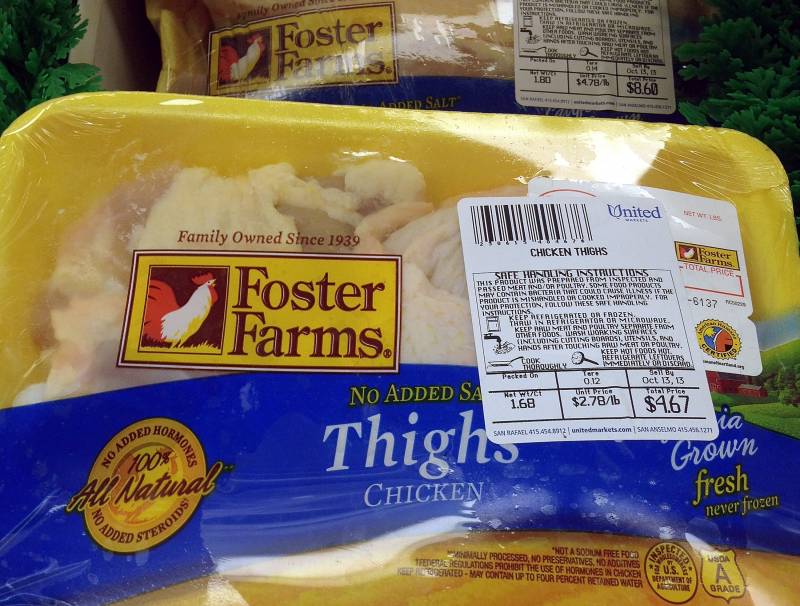"They’re literally writing the book as they go along. They said, I know it looks all over the place, but no one has any procedures," he said.
Local health officials said they first became aware of the outbreak at Foster Farms in mid-June. In a phone interview with KQED in July, Merced County Health Officer Dr. Salvador Sandoval said he discussed with a Foster Farms official various options should the outbreak at the plant get “out of hand.”
Sandoval said the official pointed to President Trump’s April executive order under the Defense Production Act.
“Some of the CDC (Centers for Disease Control and Prevention) guidelines have been that, if people are positive, or have been exposed to someone that's positive on the line at a certain point, because of the Defense Production Act, that they might continue to work and not be quarantined, because of ... to maintain production,” Sandoval said.
Ira Brill, Foster Farms' communications chief, disputed Sandoval's characterization through a company PR representative.
Brill "wanted to inform you that the information as described ... is not accurate and is taken out of context. The company will not participate further," Lorna Bush of San Francisco's Fineman PR said in a July 21 email.
On June 29, a team from the Merced County Department of Public Health did a walkthrough of the plant, Sandoval said. During the site visit, he said, county officials noticed several "problem areas." One was the length of plexiglass in the break rooms, which county officials did not consider to be extensive enough, he said.
County officials recommended that all line workers at the plant be tested for coronavirus, Sandoval said. But plant officials said blanket testing could be difficult because some workers are temporary.
"That has to be taken into account — how that's going to be managed," Sandoval said.
The health officer said he was told that if the Livingston plant closed, Foster Farms would have to consider slaughtering 2 million chickens per week. Sandoval said he suggested freezing the chickens, but was told that the plant prides itself on having fresh chicken and that that is an important part of the company’s ability to compete with companies in other states.
"We're not surprised at the large numbers of cases we're hearing," said Deep Singh, executive director of the Jakara Movement, a Sikh community organizing group.

